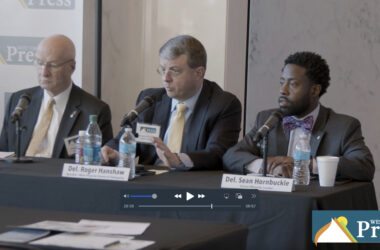CLARKSBURG, W.Va. — On June 13, 1966, the U.S. Supreme Court gave its decision in the Miranda v. Arizona case, establishing that each suspect must be advised of four constitutional rights before interrogation by authorities.
The Miranda warning has served as an important part in criminal proceedings as it is intended to protect a suspect’s Fifth Amendment right to “refuse to answer self-incriminating questions.”
The familiar recitation of the warning remains as follows: “You have the right to remain silent. Anything you say can and will be used against you in the court of law. You have the right to an attorney. If you cannot afford an attorney, one will be provided for you.”
As a preventive measure, law enforcement officers are required to administer the Miranda warning in order to protect individuals who are in custody and subject to interrogation.
Retired Upshur County Sheriff Virgil Miller said when he started his career in the early 1970s, Miranda rights were relatively new.
“It started and the police were nervous that it was strictly to protect the criminals,” Miller said. “As the police got used to the warnings, they realized it wasn’t as big of a deal as they thought…




